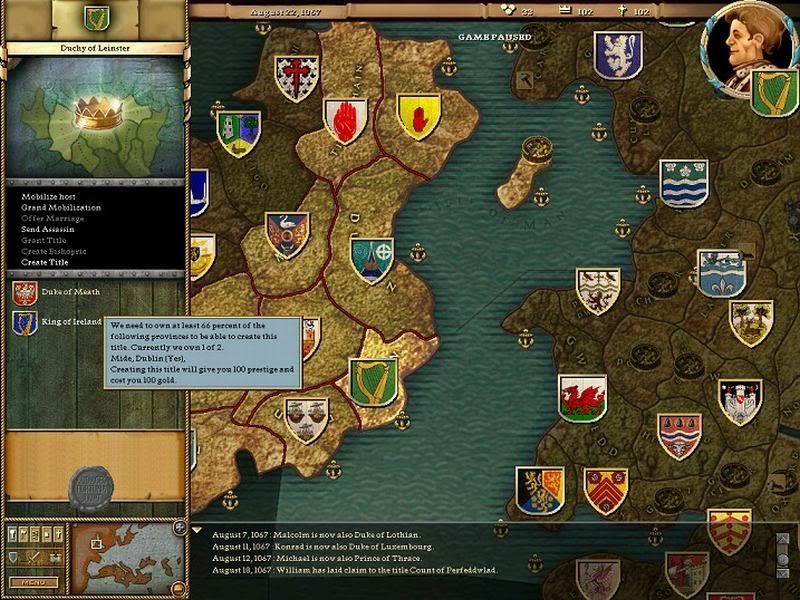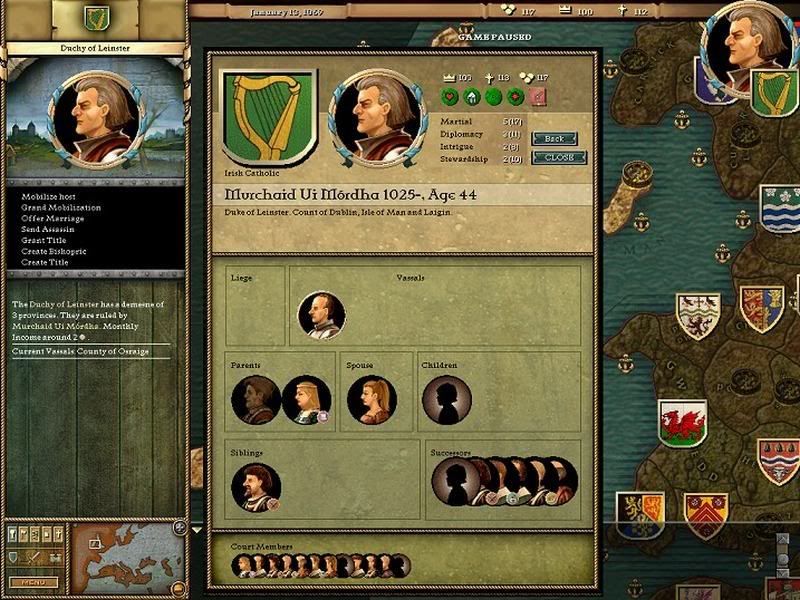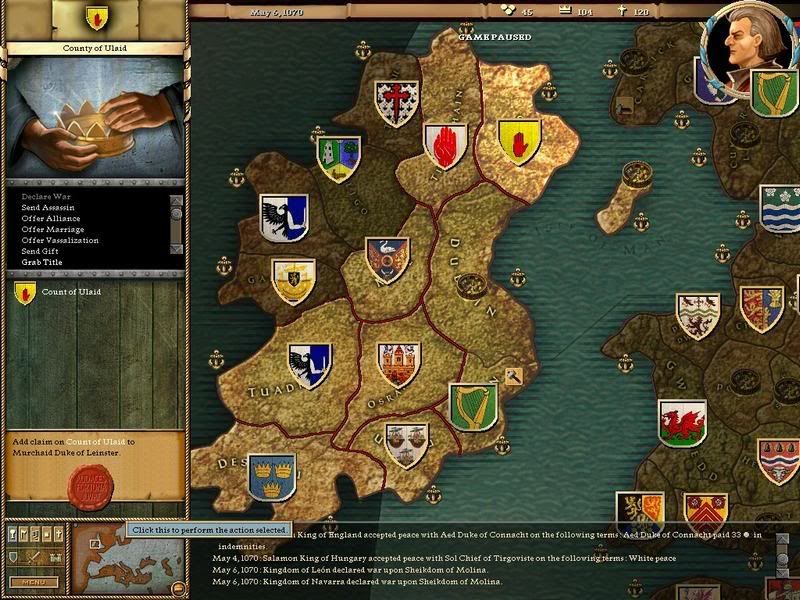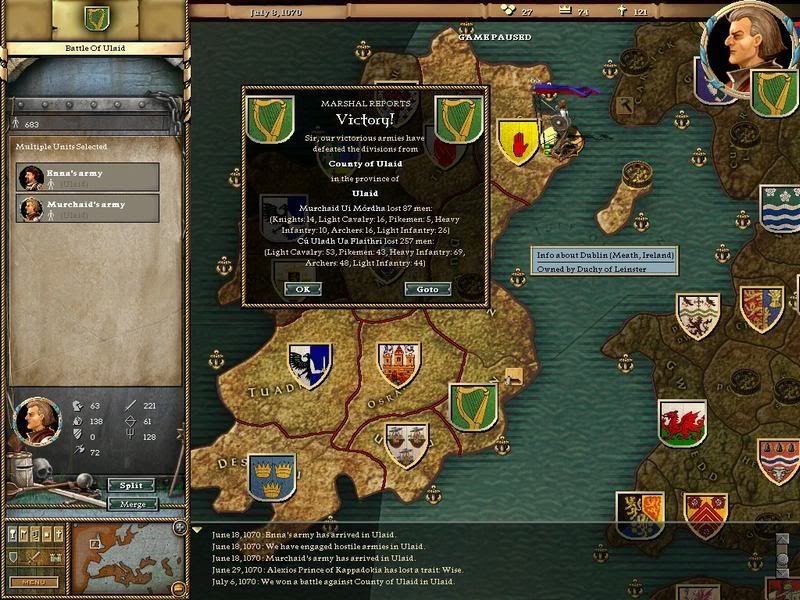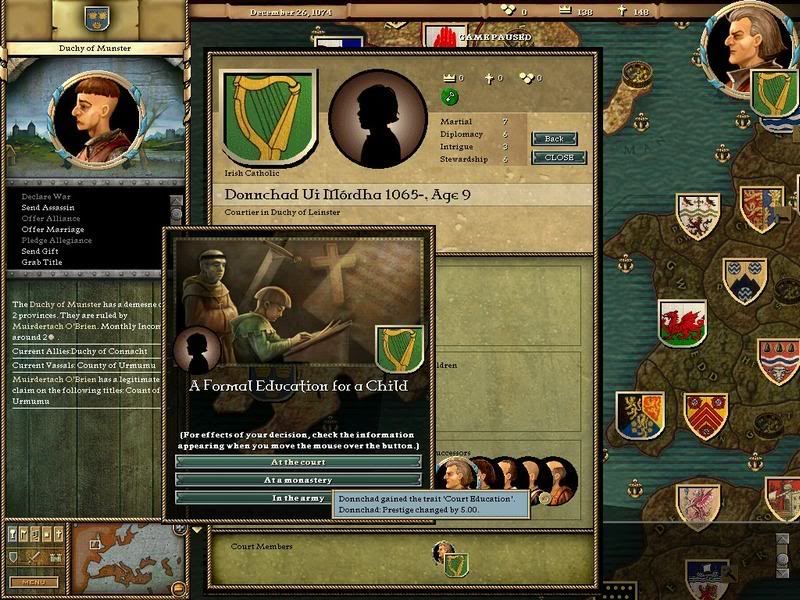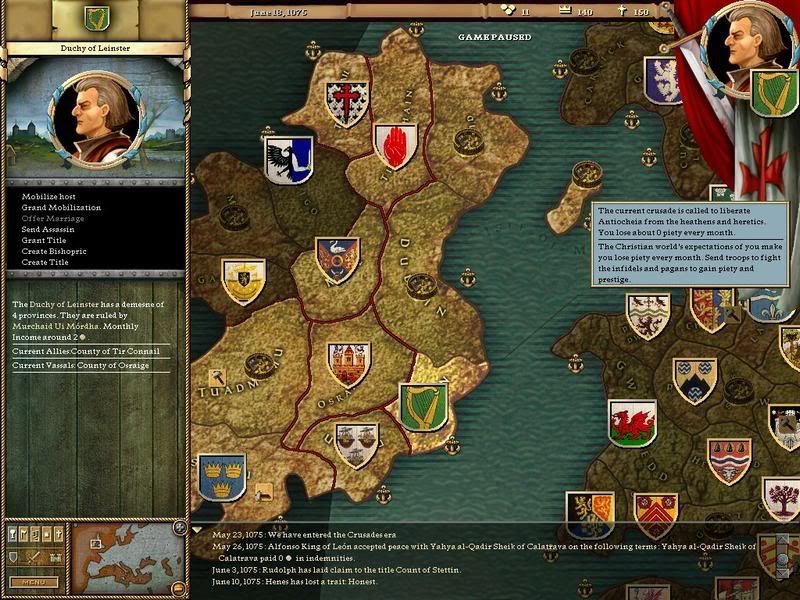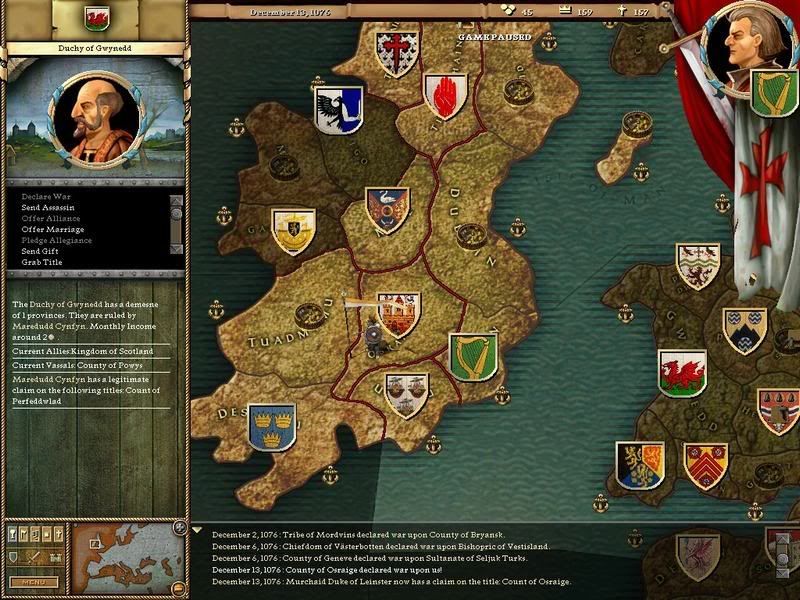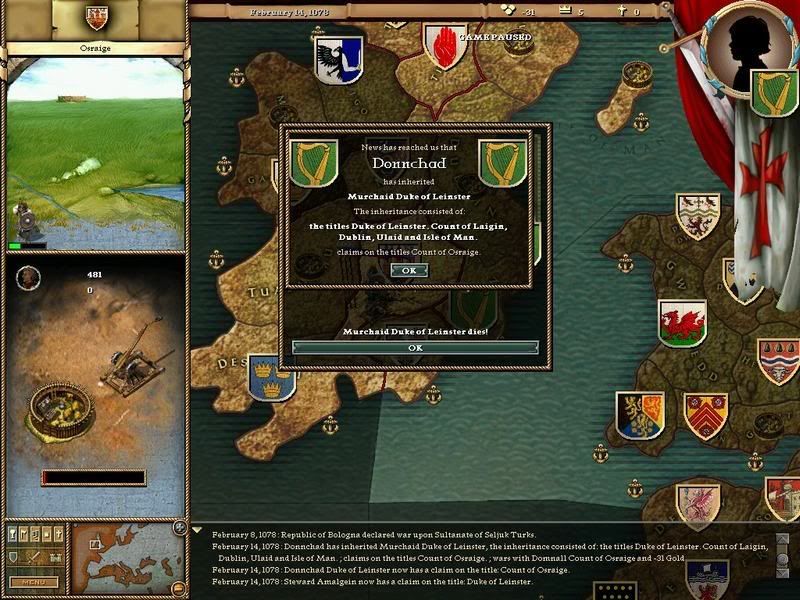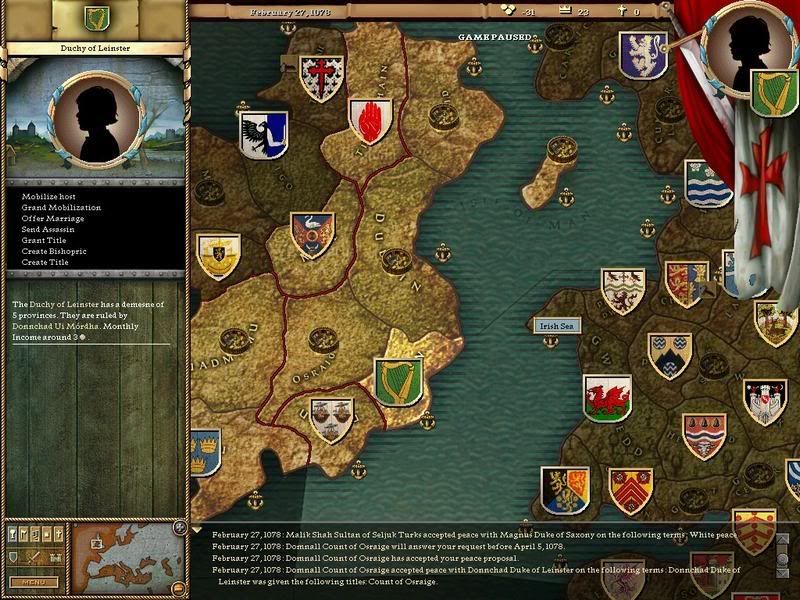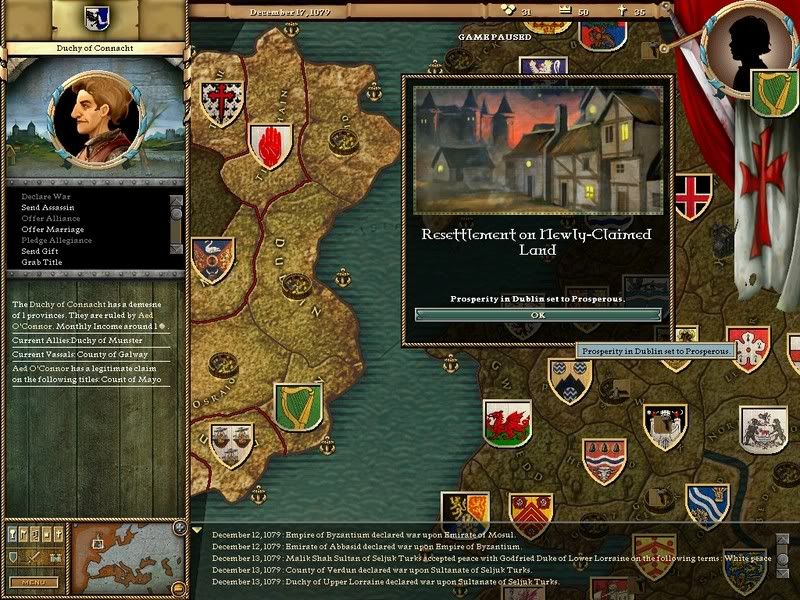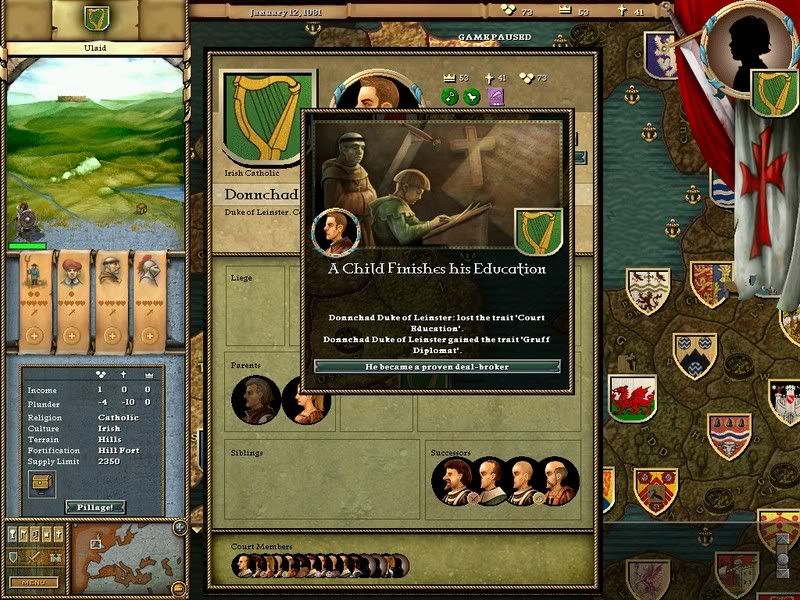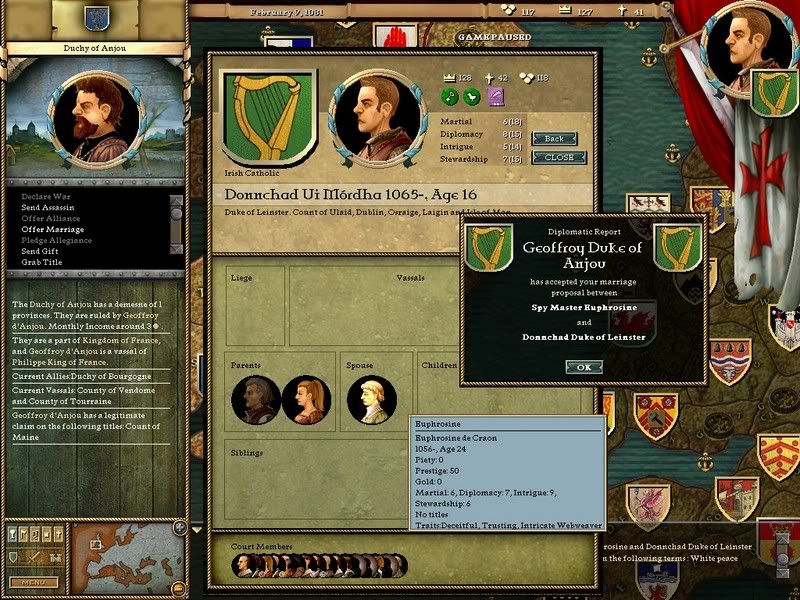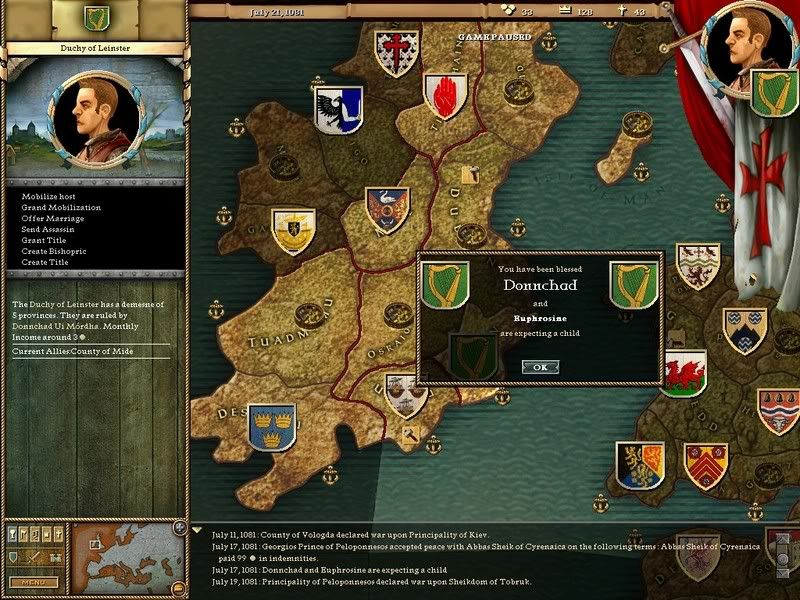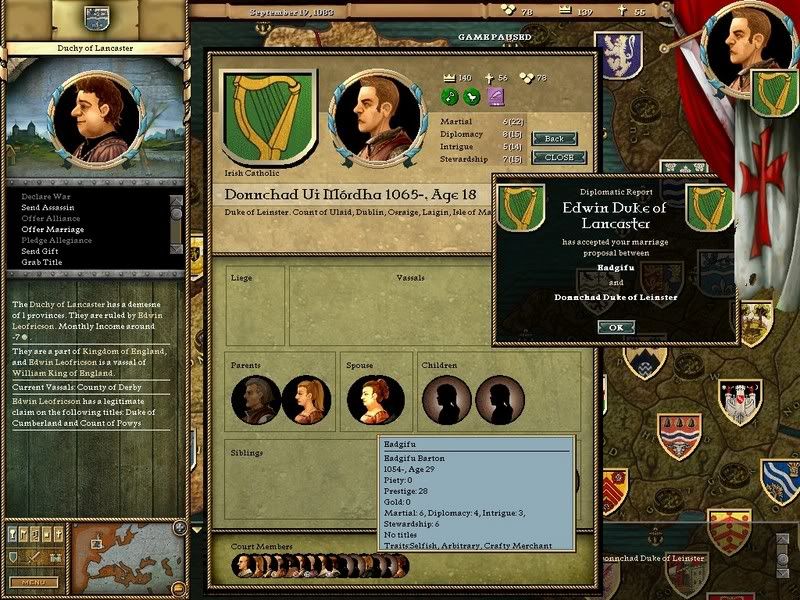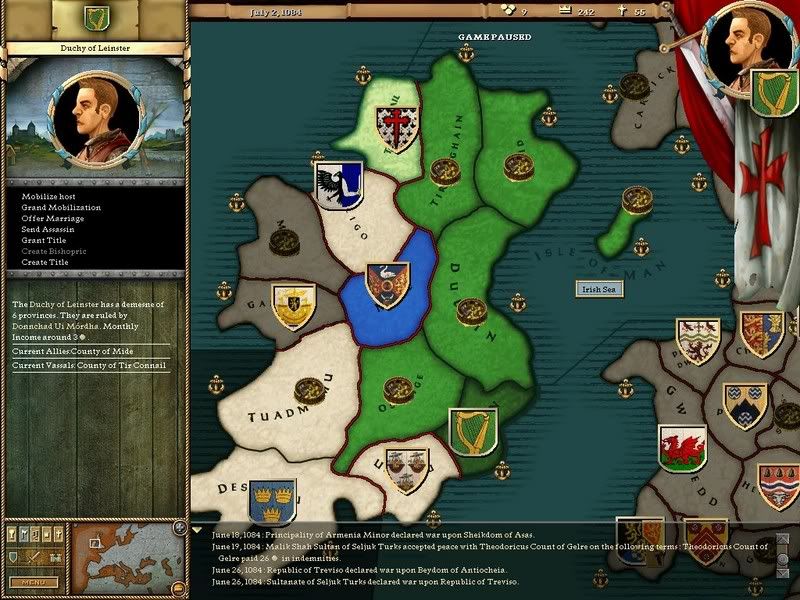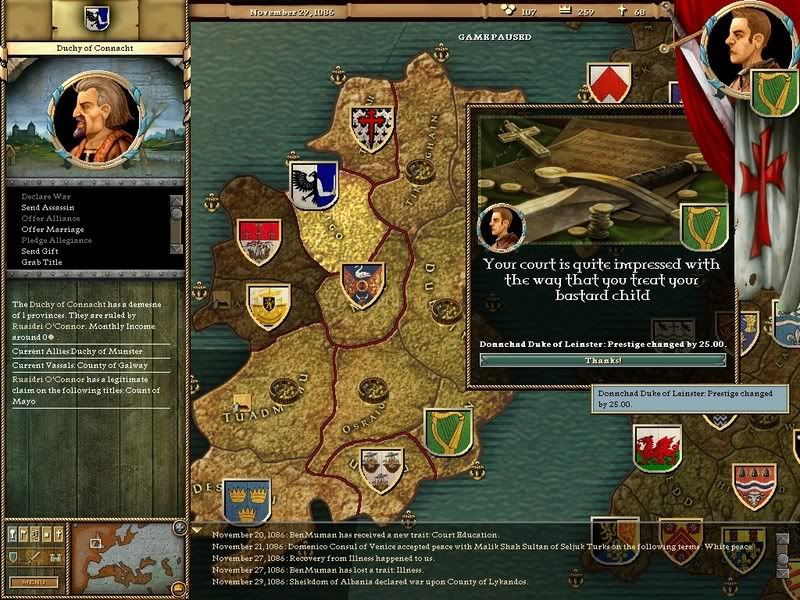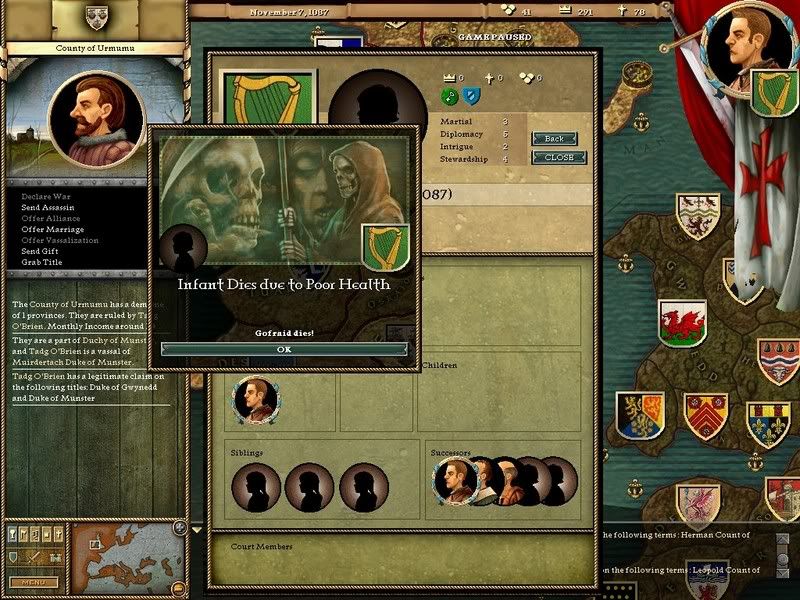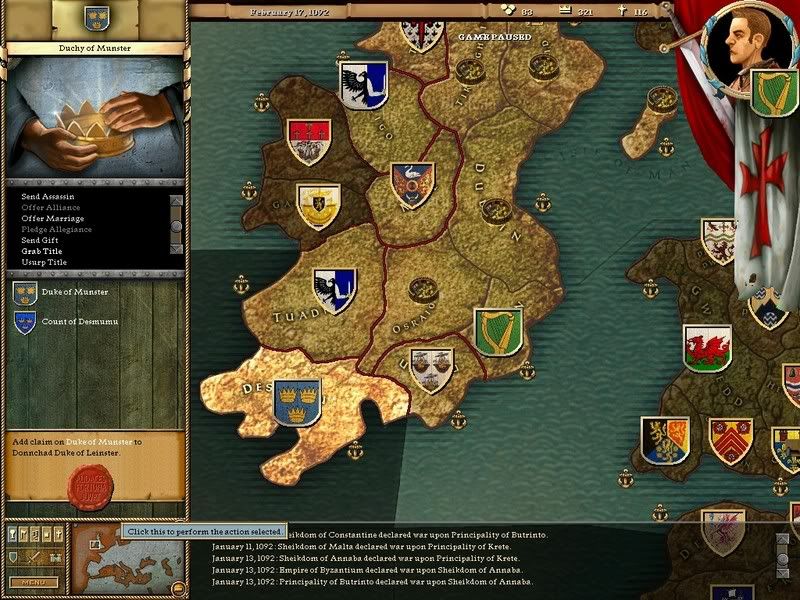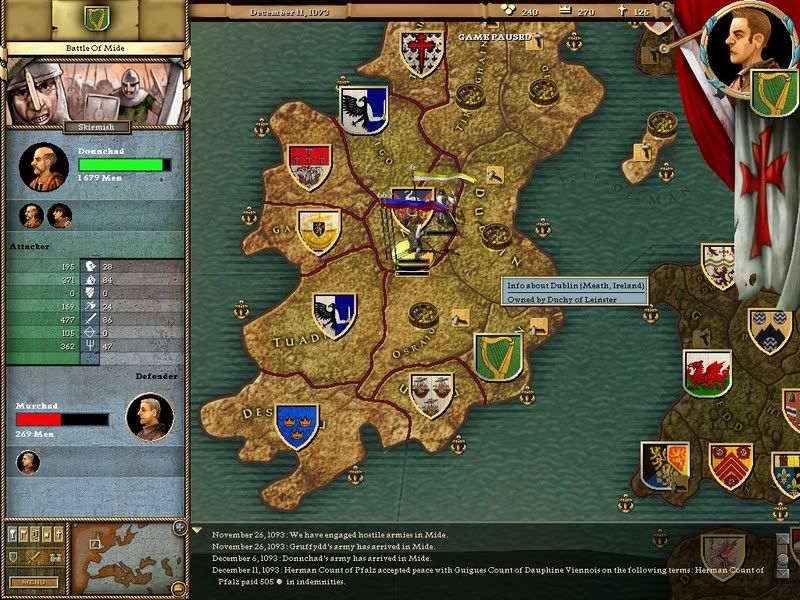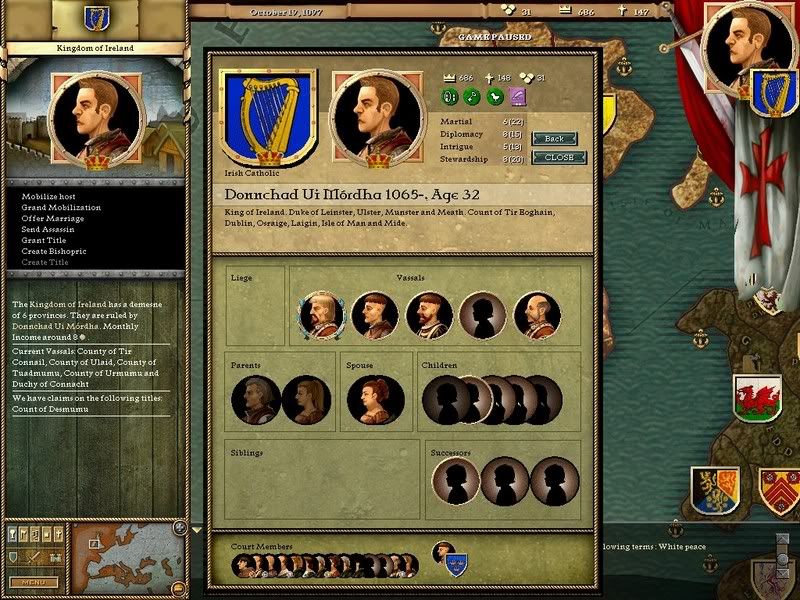Hello all, and welcome to my second AAR, my first being a unfinished piece about the CSA during the Second Mexican War using the Age of Nationalism mod for EU2. Now that I've sufficiently dated myself, a few words about why Crusader Kings and why Leinster.
First off, I've been a Paradox addict ever since I picked up EU2, and I always wanted to get CK. However, living in South Carolina, it was, let us say, difficlt to get any sort of retail assistance in this particular endeavor. Needless to say, I never found it in stores, and while always aware of it, I distracted myself with Vicky and HoI 2 before one day last week while browing Gamersgate, I came across it.
20 bucks?
Sold
So now I've been playing for a solid week. After a few introductory games, I finally figured ot enough about the game to not crash and burn in 10 years, so here we go.
I've chosen Leinster because they're already a dukedom, they don't have a liege, and I wanna be King of Ireland.
So here we go, hope everyone will enjoy.
Oh, btw, CK version 1.5, N/N. I'm still new.
So I start the game in 1066 and wait for the obligatory autosave. Then I take a look at who's running the show.

He's old. Really old. And has a jawbreaker of a name. Luckily, he does have a son who is...well, less old, and already count of Dublin.
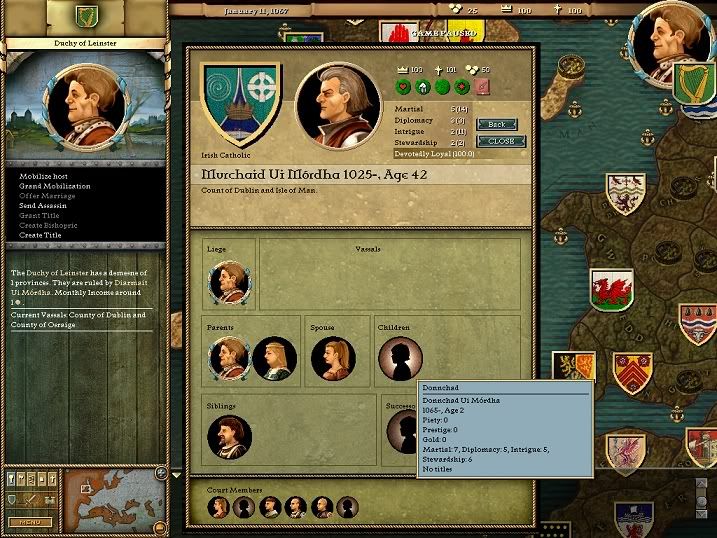
At least Junior has found enough time in his busy schedule to sire a son, though he's only two at the time. Which means he was born when his mother was 39. Formidable woman, that. Moving on, we select our various ministers and concillors, those who will begin to transform our little corner duchy into a kingdom.

As the year 1066 moves on, the Ui Mordha clan looks across their Emerald Isle, looking for weakness, and gain.
First off, I've been a Paradox addict ever since I picked up EU2, and I always wanted to get CK. However, living in South Carolina, it was, let us say, difficlt to get any sort of retail assistance in this particular endeavor. Needless to say, I never found it in stores, and while always aware of it, I distracted myself with Vicky and HoI 2 before one day last week while browing Gamersgate, I came across it.
20 bucks?
Sold
So now I've been playing for a solid week. After a few introductory games, I finally figured ot enough about the game to not crash and burn in 10 years, so here we go.
I've chosen Leinster because they're already a dukedom, they don't have a liege, and I wanna be King of Ireland.
So here we go, hope everyone will enjoy.
Oh, btw, CK version 1.5, N/N. I'm still new.
So I start the game in 1066 and wait for the obligatory autosave. Then I take a look at who's running the show.

He's old. Really old. And has a jawbreaker of a name. Luckily, he does have a son who is...well, less old, and already count of Dublin.

At least Junior has found enough time in his busy schedule to sire a son, though he's only two at the time. Which means he was born when his mother was 39. Formidable woman, that. Moving on, we select our various ministers and concillors, those who will begin to transform our little corner duchy into a kingdom.

As the year 1066 moves on, the Ui Mordha clan looks across their Emerald Isle, looking for weakness, and gain.



